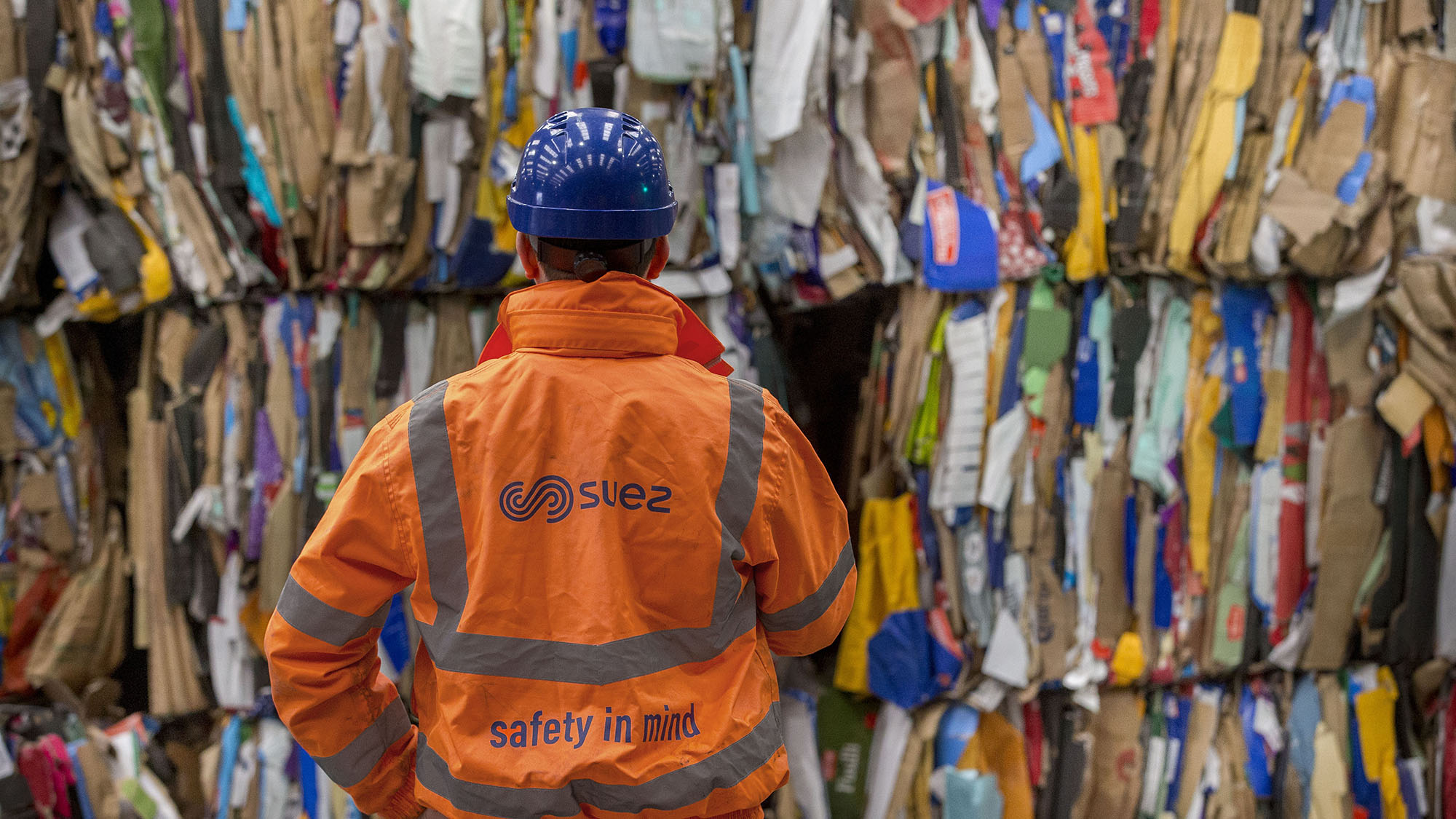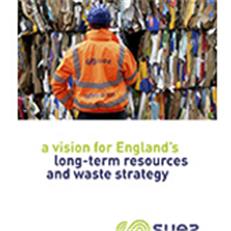SUEZ publishes vision for future of resources and waste management
The manifesto covers the origins of waste, how materials are handled, collected, processed and treated and sets out its view on the responsibility of producers to maximise the resource-efficiency of their products – notably packaging.
As well as backing a deposit return scheme (DRS) for ‘on-the-go’ packaging and more comprehensive waste reduction targets, SUEZ calls for more recycled content in better-designed packaging, smarter data collection, greater collaboration with business, and a new government department to identify key materials and substances essential for the future of the environment and the economy.
The document, ‘A vision for England’s long-term resources and waste strategy’, also suggests that products should display a standard form of environmental labelling, similar to the existing EU energy ratings for white goods, to help consumers vote with their wallets and accelerate the change to more sustainable design.
The paper also reveals the findings of new YouGov polling (commissioned by SUEZ) around public perceptions of litter. One-in-four Britons (24%) think that sandwich packaging or fast food containers are the main cause of litter, while 18% believe it to be crisp packets or confectionary items and 14% think plastic bottles are to blame.
These are all consumed ‘on the go’ and SUEZ believes its recommendations, which include deposit return schemes, taxes favouring recycled content in packaging, better design to aid recycling and producers contributing more to the cost of capturing and recycling their products, would have a significant positive effect on eradicating these items in litter, which often ends up in marine environments.
SUEZ recycling and recovery UK Chief Executive, David Palmer-Jones, says a brand-new approach is required with an emphasis on ‘harvesting’ waste materials – setting out with the intention of extracting key economic resources from waste, rather than passively collecting materials in the current weight-based recycling regime.
He said: “We envisage a revolution, where the notion of ‘waste’ is consigned to the bin and, instead, we truly value the materials flowing around the economy.
To move from a throw-away society to a circular economy, we must view the materials we consume as precious resources, paid for through natural capital, and capture, reuse and recycle rather than squandering them. Taking care of the environment makes economic sense too and we estimate could add £9 billion to the UK economy – placing this issue at the heart of a modern industrial strategy.
We believe innovative new systems will arise to capture, recycle, reuse and re-form materials if packaging manufacturers are required by law to have 50% minimum recycled content in their products and adhere to common design standards.
Households will be more motivated to recycle if we can simplify and consolidate the country’s kerbside recycling collections to five main systems, and we believe this is possible. We believe new data systems are also needed to track materials from the point of production, to sale, to the bin and back into production – from cradle-to-cradle, not grave.
Weighing individual businesses and households’ residual waste through a ‘chip-and-bin’ system will help gather this data and could enable more ‘pay-as-you-throw’ regimes, helping households and businesses which recycle well to reduce their council taxes or waste collection bills.
Under our proposals, manufacturers would also help to cover the costs associated with the separate collection of a greater range of recyclable goods – like coffee pods or pet-food pouches – and would operate refundable deposit systems for packaging, encouraging consumers to bring back on-the-go bottles and cans in particular.
The UK government has a golden opportunity to kick-start this resource revolution when we leave the EU and create a sustainable, world-leading, new economic base – and we believe our manifesto provides the tools to seize that opportunity.”
Notes to editors
The policy interventions proposed in SUEZ’s manifesto relate principally to the UK government, which has responsibility for environmental policy strategy in England, whereas the devolved administrations in Scotland, Northern Ireland and Wales take responsibility for this within their own jurisdictions. Although Wales and Scotland have arguably outpaced England in respect of progressive policy development in this area in recent years, the population balance (and associated waste arisings) is so heavily weighted towards England that the effect of positive Welsh and Scottish performance only has a marginal effect on performance of the UK as a whole. It is therefore essential for England to take a leading role if the United Kingdom wishes to deliver substantial environmental performance gains. SUEZ urges, however, that there should be increasing alignment in policy, targets and interventions across all of the UK post-Brexit and believes many of its recommendations are equally applicable and appropriate within the devolved administrations.

